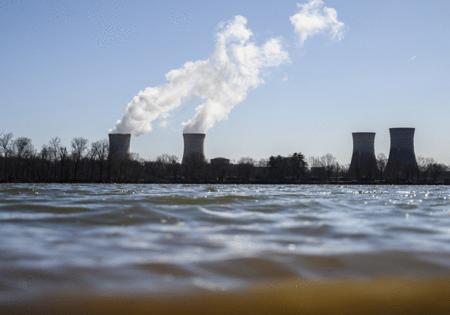A Three Mile Island nuclear reactor could restart under a new deal with Microsoft
Published in Business News
Five years after a nuclear reactor at the Three Mile Island plant in central Pennsylvania closed amid financial troubles, its owner wants to bring it back online.
Baltimore-based Constellation Energy Corp. said Friday that it has signed a 20-year agreement with Microsoft under which the technology company will purchase power from Three Mile Island Unit 1. That reactor is located at an independent facility from Unit 2, which closed in 1979 after experiencing a partial meltdown.
Constellation said it would spend $1.6 billion to restart Unit 1 — and won't seek any public subsidies — which the company said "operated at industry-leading levels of safety and reliability for decades." Federal regulators would need to approve a restart, though it already has support from Gov. Josh Shapiro. The company said it expects the reactor to come online by 2028.
"I think policymakers have recognized that a strategy that is dependent just on wind, solar, batteries isn't going to fully get us there and meet the needs of the system from a reliability standpoint," Joe Dominguez, Constellation's president and CEO, said in an interview.
For Microsoft, buying energy from the renewed plant, dubbed the Crane Clean Energy Center, will "help match the power its data centers in PJM use with carbon-free energy," according to a news release. Valley Forge-based PJM Interconnection, a regional transmission organization, operates the electric grid in 13 states, including Pennsylvania and New Jersey.
Exelon Generation pulled the plug on 837-megawatt Unit 1 in 2019 after state lawmakers declined to support legislation that would have directed hundreds of millions of dollars in subsidies from Pennsylvania electric customers to the state's nuclear industry. Exelon at the time said it couldn't compete in markets dominated by low-cost natural gas. Constellation's predecessor company split from Exelon in 2022.
Dominguez said multiple factors have contributed to a changing landscape for the nuclear industry since the Three Mile Island reactor closed five years ago. In addition to reliability questions with regard to wind and solar, he pointed to incentives in the Inflation Reduction Act in 2022, Russia's war in Ukraine, and the pandemic. "We saw this effort ... to bring in and onshore a lot of critical supply," he said.
A study commissioned by the Pennsylvania State Building & Construction Trades Council — which supports the restart and represents more than 115 local unions — estimated that the project would create 3,400 jobs, including 600 direct jobs at the plant in Middletown, south of Harrisburg.
The study projected that over 20 years, the Crane Clean Energy Center — named after the late Exelon CEO Chris Crane — would generate $3.6 billion in state and federal tax revenues and reduce carbon emissions by an average of 3 million metric tons per year, "offsetting about 10% of Pennsylvania's passenger vehicle emissions."
Shapiro, a first-term Democrat, said in a statement that the facility "will safely utilize existing infrastructure to sustain and expand nuclear power in the commonwealth while creating thousands of energy jobs and strengthening Pennsylvania's legacy as a national energy leader."
Pennsylvania has five nuclear power plants, according to the state Department of Environmental Protection. Constellation, which is publicly traded, owns Limerick Generating Station in Montgomery County and Peach Bottom Atomic Power Station in York County.
Restarting Unit 1 would require approval from the U.S. Nuclear Regulatory Commission and permits from state and local agencies, according to Constellation. The company said it also plans to seek a license renewal "that will extend plant operations to at least 2054."
Dominguez, the CEO, said the plant remains in "pretty good condition," though the company needed to replace the main transformer. Other tasks include ordering key components, hiring staff, and connecting the plant to PJM, he said.
Asked about potential safety concerns, Dominguez said TMI "will always be remembered by some people as the industry's point of greatest failure in the United States."
"But for those of us who worked and have worked in the industry for decades, Three Mile Island represents something very different," he said. "It represents the place where we learned hard lessons and the birthplace of the resolve, the new processes, new equipment, new designs through construction activities that ultimately transformed the industry."
©2024 The Philadelphia Inquirer, LLC. Visit at inquirer.com. Distributed by Tribune Content Agency, LLC.












Comments